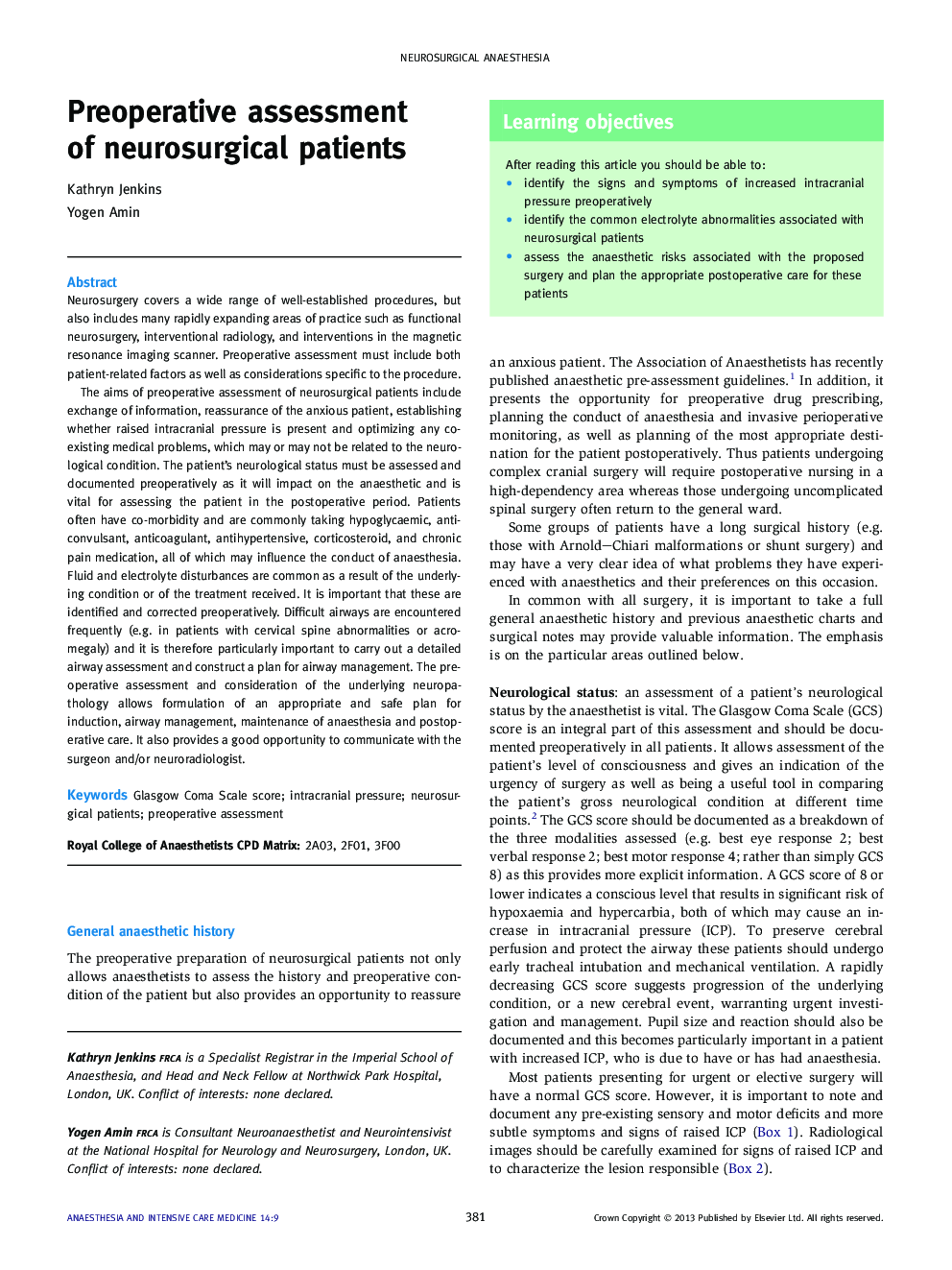| Article ID | Journal | Published Year | Pages | File Type |
|---|---|---|---|---|
| 2742637 | Anaesthesia & Intensive Care Medicine | 2013 | 6 Pages |
Neurosurgery covers a wide range of well-established procedures, but also includes many rapidly expanding areas of practice such as functional neurosurgery, interventional radiology, and interventions in the magnetic resonance imaging scanner. Preoperative assessment must include both patient-related factors as well as considerations specific to the procedure.The aims of preoperative assessment of neurosurgical patients include exchange of information, reassurance of the anxious patient, establishing whether raised intracranial pressure is present and optimizing any co-existing medical problems, which may or may not be related to the neurological condition. The patient's neurological status must be assessed and documented preoperatively as it will impact on the anaesthetic and is vital for assessing the patient in the postoperative period. Patients often have co-morbidity and are commonly taking hypoglycaemic, anticonvulsant, anticoagulant, antihypertensive, corticosteroid, and chronic pain medication, all of which may influence the conduct of anaesthesia. Fluid and electrolyte disturbances are common as a result of the underlying condition or of the treatment received. It is important that these are identified and corrected preoperatively. Difficult airways are encountered frequently (e.g. in patients with cervical spine abnormalities or acromegaly) and it is therefore particularly important to carry out a detailed airway assessment and construct a plan for airway management. The preoperative assessment and consideration of the underlying neuropathology allows formulation of an appropriate and safe plan for induction, airway management, maintenance of anaesthesia and postoperative care. It also provides a good opportunity to communicate with the surgeon and/or neuroradiologist.
